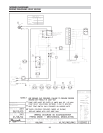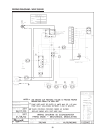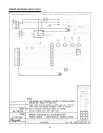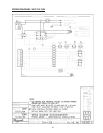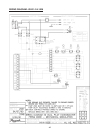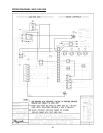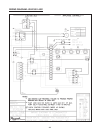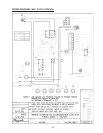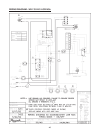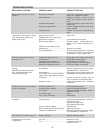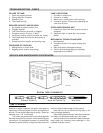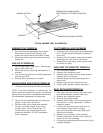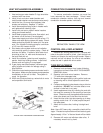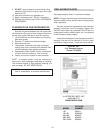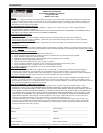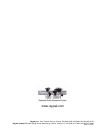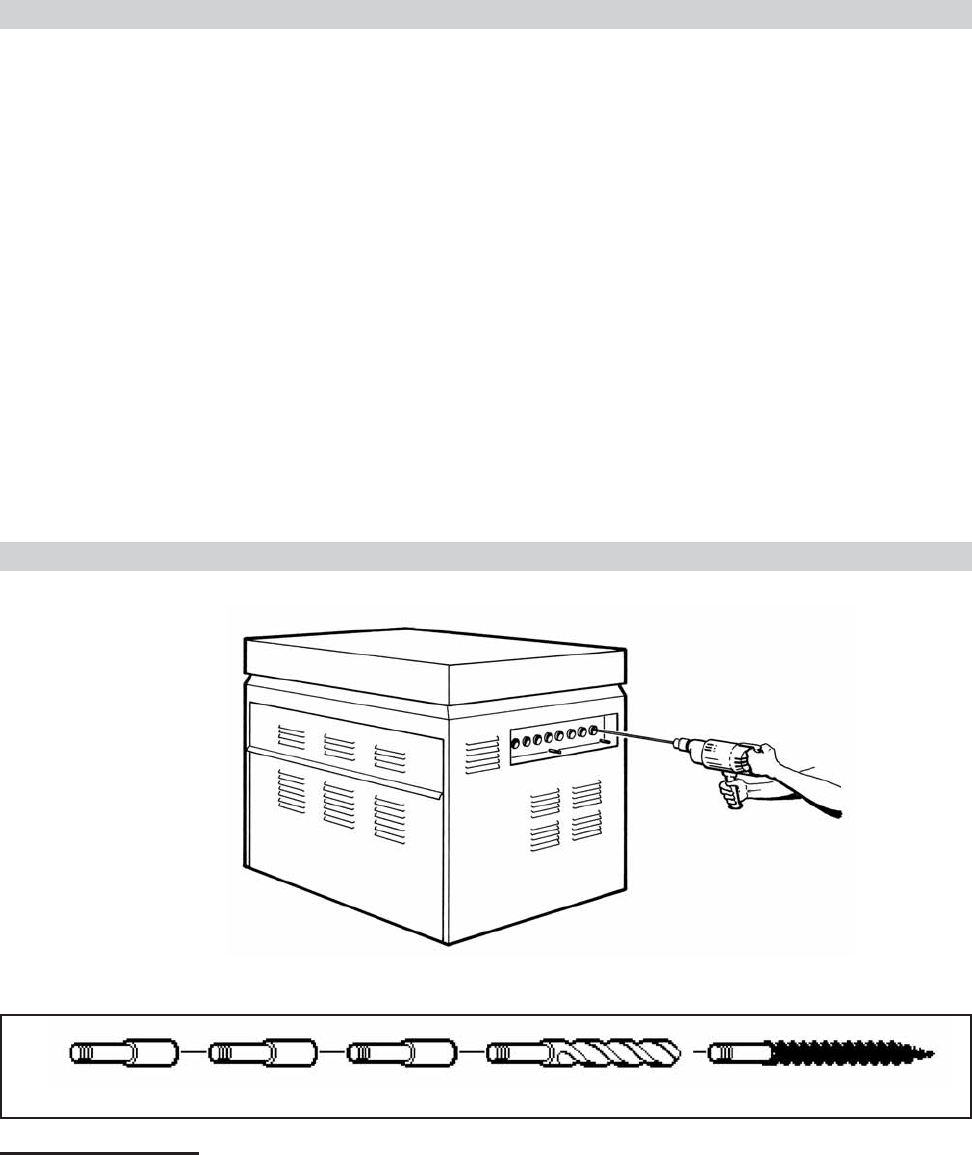
FAILURE TO PUMP
1. Pump not properly primed.
2. Wrong direction of rotation.
3. Speed too low.
4. Total head too high.
REDUCED CAPACITY AND/OR HEAD
1. Air pockets or leaks in suction line.
2. Clogged impeller.
3. Foot valve strainer too small or clogged.
4. Excessive suction lift (over 15 feet).
5. Insufficient positive suction head (for hot water).
6. Total head more than that for which pump is
intended.
7. Excessively worn impeller and wearing rings.
RAPIDWEAR OF COUPLING
1. Misalignment or a bent shaft.
2. Sagging motor mounts (over-oiling).
TUBE CLEANING
Establish a regular inspection schedule, the frequency
depending on the local water condition and severity of
service. Do not let the tubes clog up solidly. Clean out
deposits over 1/16" in thickness.
The heater may be cleaned from the side opposite
the water connections as shown, without breaking pipe
connections. It is preferable, however, to remove both
headers for better visibility through the tubes and to be
RAYPAK TUBE CLEANING KIT
sure the residue does not get into the system.
Note that you do not remove the top pan or the
heat exchanger generally.
After reaming with the auger, mount the wire brush
and clean out the debris remaining in the tubes.
Another method is to remove the heat exchanger,
ream tubes and immerse heat exchanger in non-
inhibited de-scale solvent.
PUMP LOSES PRIME
1. Air leaks in suction line.
2. Excess air in water.
3. Water seal in stuffing box not functioning.
4. Excessive suction lift and pump operating too
near shut-off point.
OVERLOADED DRIVING UNIT
1. Head much lower than that for which pump is
designed.
2. Speed too high or higher than that contem-
plated.
MECHANICAL TROUBLES AND NOISE
1. Misalignment.
2. Excessive suction lift or vapor binding (hot
water).
3. Bent shaft and/or damaged bearings.
4. Suction and discharge piping not properly
supported and anchored.
SERVICE AND MAINTENANCE PROCEDURES
TROUBLESHOOTING - PUMPS
Fig. # 8154
Extension Pieces (5) Auger with Carbide Tip Wire Brush
48



